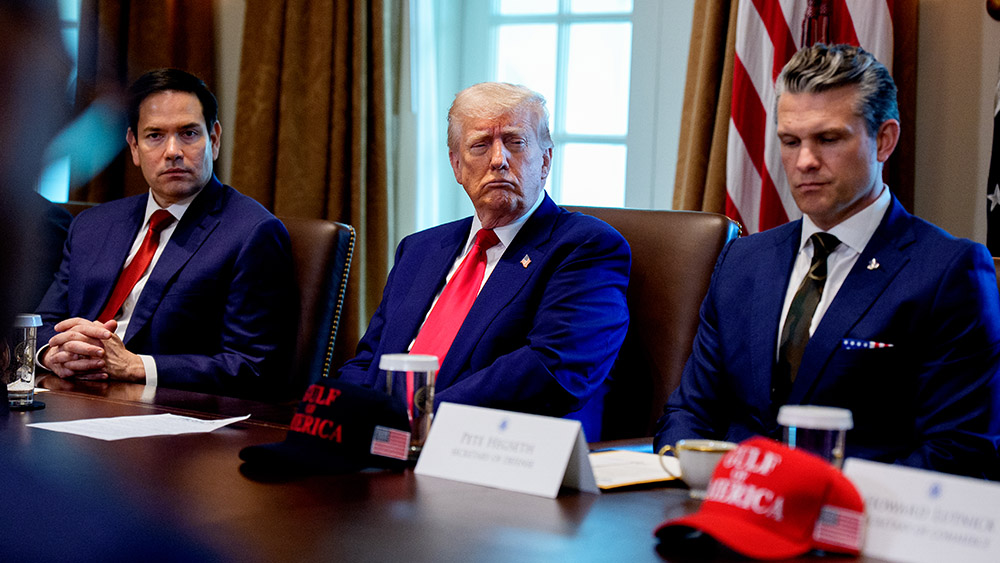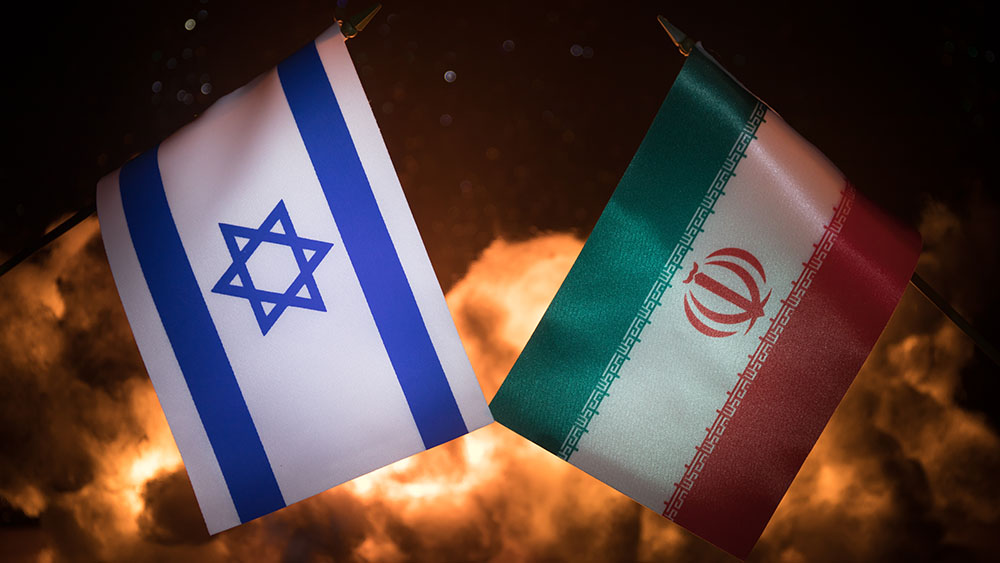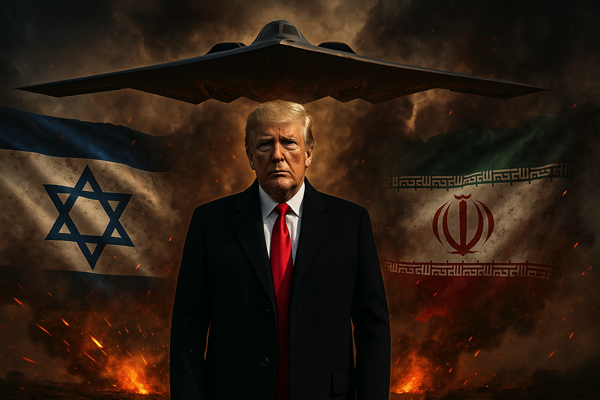 Parler
Parler Gab
Gab
- Trump approved attack plans on Iran but delayed the final order, awaiting Tehran’s response on nuclear enrichment.
- U.S. B-2 bombers armed with bunker-busting bombs are stationed at Diego Garcia and ready to strike Iran’s Fordow nuclear site.
- Iran vows "irreparable damage" if attacked, refusing to negotiate under military threats, while Russia warns against U.S. intervention.
- A strike could trigger a wider war, with U.S. intelligence doubting it would fully halt Iran’s nuclear program.
- Trump faces domestic pressure as military assets move into place, leaving little time for diplomacy before potential conflict.
Military buildup causing concern
The Pentagon has been rapidly reinforcing its presence in the Middle East, deploying warships, tanker planes for mid-air refueling, and an additional aircraft carrier group. Six B-2 Spirit bombers, the only U.S. aircraft capable of carrying the MOP bombs, are now positioned at the Diego Garcia base, a strategic UK-U.S. outpost in the Indian Ocean. British officials reportedly fear that any strikes launched from Diego Garcia could drag the UK into the conflict, further destabilizing the region. Iran has made it clear that it will not back down under military threats. In a defiant statement, Iran’s United Nations Mission declared, "Iran does NOT negotiate under duress, shall NOT accept peace under duress, and certainly NOT with a has-been warmonger clinging to relevance"—an apparent jab at Trump. Supreme Leader Ayatollah Ali Khamenei echoed this resolve, warning that any U.S. military intervention would be met with devastating retaliation.The high-stakes dilemma
If Trump greenlights an attack, the consequences could be dire. A strike on Fordow would likely provoke immediate Iranian retaliation against U.S. forces and allies in the region, potentially igniting a wider war. The U.S. intelligence community reportedly believes that even successful strikes would only delay Iran’s nuclear ambitions by months rather than eliminate them entirely. Meanwhile, Russia has already warned against U.S. military action, with Foreign Minister Sergei Lavrov calling for an end to hostilities. Domestically, Trump faces pressure from both sides. While some conservative allies urge a hardline stance against Iran, others within his own political base fear another endless Middle East conflict. The president’s decision in the coming days—or even hours—could define his legacy as either a peacemaker or a wartime leader. Trump’s administration is playing a high-risk game of brinkmanship with Iran. The president’s hesitation suggests he may still prefer a diplomatic resolution, but with military assets in place and tensions at a boiling point, the window for de-escalation is rapidly closing. If diplomacy fails, the U.S. could soon find itself entangled in yet another devastating Middle East conflict. Sources for this article include: RT.com WSJ.com Telegraph.co.uk TheGuardian.com Reuters.comCIS report: Roughly 1 million illegal immigrants have left the U.S. since January
By Laura Harris // Share
DHS warns of surge in China-made signal jammers smuggled into the United States
By Laura Harris // Share
Malware data breach exposes 16 BILLION login credentials
By Ava Grace // Share
The end of Israeli exceptionalism
By News Editors // Share
Trump declares CEASEFIRE between Israel and Iran after 12 days of conflict
By Ramon Tomey // Share
Governments continue to obscure COVID-19 vaccine data amid rising concerns over excess deaths
By patricklewis // Share
Tech giant Microsoft backs EXTINCTION with its support of carbon capture programs
By ramontomeydw // Share
Germany to resume arms exports to Israel despite repeated ceasefire violations
By isabelle // Share










